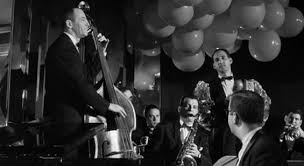We come to the final section of Josef Pieper’s book, Only the Lover Sings, a series of reflections on art and contemplation. Follow the links to read my reflections on Chapter 1, Chapter 2, Chapter 3, and Chapter 4. Below is my reflection on the third talk of this final section.
Vita Contemplativa—The Contemplative Life

What is contemplation?
“It’s immediate and direct meaning indicates seeing, beholding, perceiving some reality
“…To contemplate means first of all to see—and not to think!
“…Also contains a special intensified way of seeing. – The gift of retaining and preserving in one’s own memory whatever has been visually perceived.”
“…it certainly perceives more than mere appearances.”
To see and not to think. Thus are more of the Church’s mystics women rather than men. There is something in the nature of woman that enables her to simply sit, to enjoy, to delight. She does it most naturally with her children, perhaps in a quieter age. So this features opens her up more easily to contemplate, to actively receive, to see the divine. Man is able as well, but woman has a particular inclination to simply sit and watch and see. Typically, man would analyze, and act.

I am not so simply made that I think this is always the case. My incredible levels of energy cause me to do quite often. But I see between my husband and myself a difference. Although I am the achiever and one more likely to want to discuss, between us, I am the one who can more easily sit with the children, just sit, not think, just be and watch.
This piercing of the word contemplation also calls to mind my work, as in an earlier section. I must sit and contemplate the information and the person presented to me.
“The eyes see better when guided by love; a new dimension of “seeing” is opened up by love alone! And this means contemplation is visual perception prompted by loving acceptance!”

“And yet, nothing in this affirming closeness to reality smacks of false idealization, nothing is embellished as if all reality were wholesome and without rough edges.”
I think back to an earlier reflection on the art of the work I do, working with people. I must see them as they are, with love, in order to give them what will really help them. It is not uncommon for me by myself to take a moment after meeting with a troubled client to contemplate the story they have shared. I do not analyze it. I take it in, I let it “simmer” so to speak. Inspiration comes.
“Those who have seen enough…who are satisfied with the outward appearance of things, may easily be content with contriving some smooth and crowd-pleasing yet shallow fabrication.”
I hear stories often about therapists who have not been helpful, who have rambled or given simple strategies but not fully entered into the story the client has shared. I suppose they have seen enough.

We cannot contemplate in a crowd. It calls for silence, for us to be alone. I have always needed to see art alone. I am an extrovert. I am too inclined too talk, too inclined to awareness of the feelings of those around me. When I am alone, I could stay and look and remember that the art evokes. I could really take time for prayer.
the mission:
If we grant Pieper the truth of his statements, art becomes a teaching tool for children. If children are surrounded by beautiful art and given space from technology and media, they will have the opportunity to recall, to allow the great art to resonate inside them before they even have words to recognize it. They will be too young to sit and contemplate. But if we believe it to be true, opportunities will create a greater facility to contemplate and to love, to understand deeper mysteries of the universe. It is a tall order, but if we believe it to be true, it can do great things.
It will do great things if we allow our senses to be restored to the real. First, the church’s were stripped of their art, their tactile and aural references to the divine. Second, technology came about to help facilitate active participation by project song lyrics on the blank wall. The artist in me recoils at the thought! When people desired some color or change to the building, they hung plain banners, for art had grown too foreign and expensive in the culture. Or too ugly.
But art has great power. Harnessing that power, bringing art and beauty back into the life of the Everyman, we can re-awake his consciousness to the divine. He can see again and be reminded that life is more than simply the task at hand or the news on the screen. There could be hope. There could be joy. There could be a festival.










